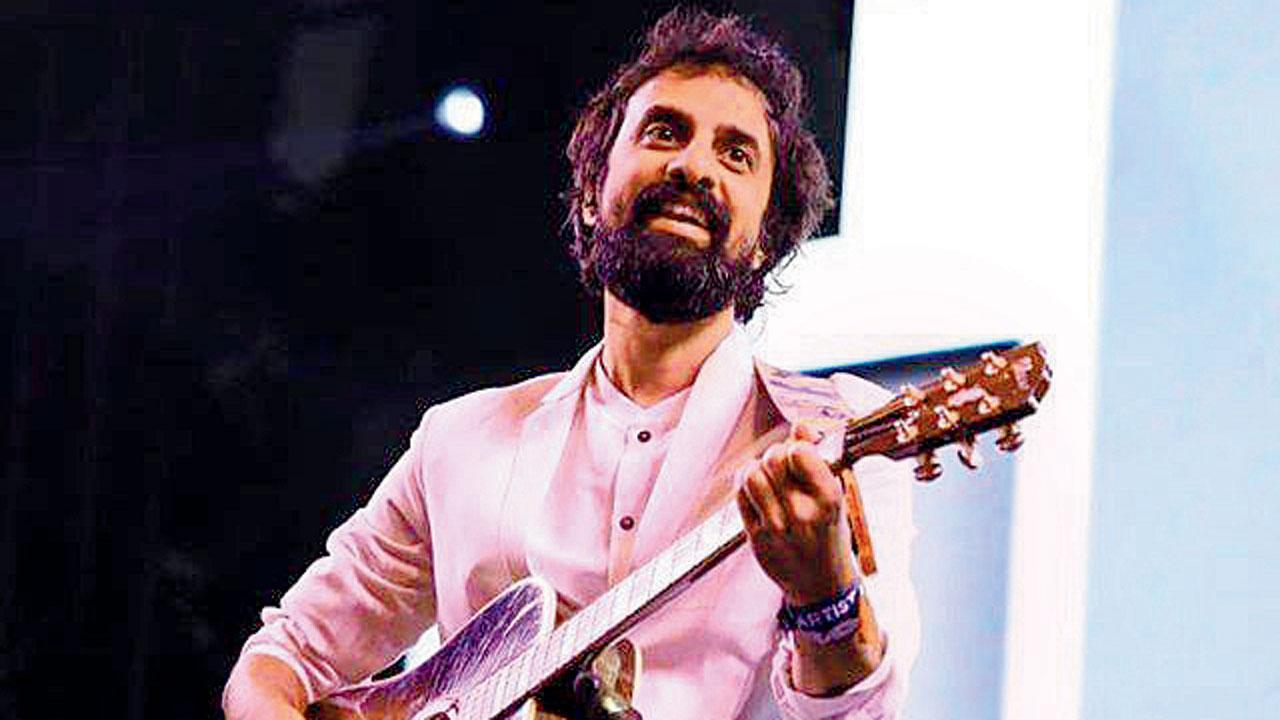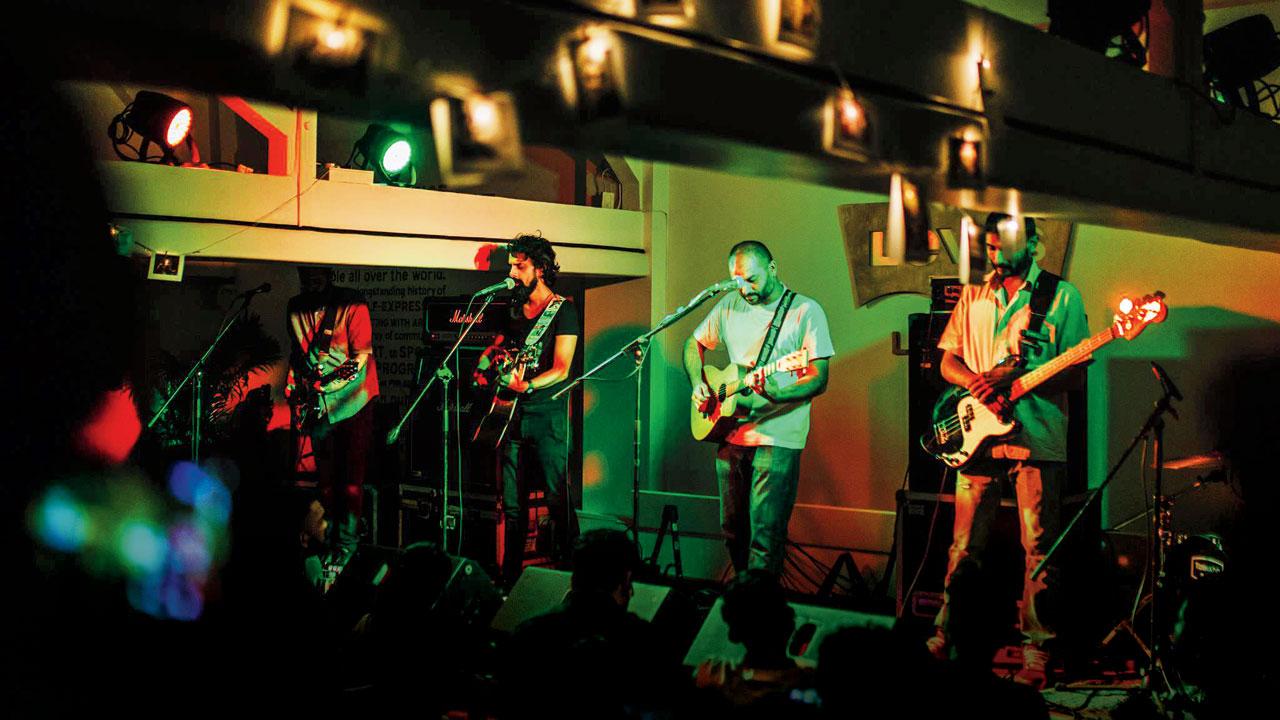Ankur Tewari’s latest album arrives at the height of a busy, creative year capturing a soundscape with expansive emotions

Ankur Tewari performs with The Ghalat Family. Pics Courtesy/Chintamani Ahire
Poetry is something that composer Ankur Tewari enjoys, and it reflects in his work, and occasionally, in his conversations. Coming off the back of a highly productive year that has seen him co-found a music label with directors Zoya Akhtar and Reema Kagti, overseeing music for The Archies and Coke Studio Bharat’s opening season, as well as working on multiple other scores, it is easy to question where he finds the headspace for it.
ADVERTISEMENT
“I just came back from a 20-day vacation in Mexico,” he casually admits. It is a necessary break from proceedings that continue at breakneck speed. “Mumbai makes me anxious when I am not working. If you are in motion, the city does not bother you, but when you stand still, it can be unnerving,” he explains.
Yet, it was the stillness and pause of the pandemic that birthed his latest album, Akela. Released on August 4, the eight-track album is a poetic and melancholic exploration of solitude, love and hope. Despite the struggles of the pandemic, Tewari observes, “We also had time on our hands. Time and space; rarities if you live in Mumbai.”
The album was already taking shape even before he pieced it together. “Some of the songs were already written. Once I started reimagining them, I went into a zone,” he expands. From the slow, jazz bop of Parwaana to the melancholy Gunjaayish hai and Doobay, this album is starkly different from his first full-length creation, Side A/Side B (2016-17). It also has a strong undercurrent of verse poetry running through it.

Among them is the moving spoken-verse driven Iss dil ka aisa hi hai. “As one of the founding members of Kommune, I have been writing poetry for a long time. It was just an organic addition to the way the album was shaping up,” the Mumbai-based singer shrugs. The verse was created originally for NH7 Weekender, but Tewari chose to retain the rights to the lines he loved.
Another stand out is the eight-minute-long finale of Sawaal. Almost trance-like, the song opens with spoken-verse poetry to move into an almost cinematic soundscape. It is a part of the independent film, Dug Dug, he reveals. “The song is a cousin to the opening track, Parwaana. We were just having fun with the composition, not limiting it to antara-mukhada form. We let it flow in free verse,” he explains.
The expansive scope of the album was something that was part of the production. “If you hear the album, you will realise that the sonic landscape is also cinematic. I could visualise it being played on a big screen. We just went with the feel and kept on building on the songs,” he says.
This required the addition of producer Rohan Ramanna, Tewari remarks. “I chose him particularly because I wanted to recreate the feeling of a dust particle suspended in the midst of the universe,” he remarks poetically.
Cinematic is a term that pops up repeatedly. Not surprising since this is his second work with the label, Tiger Baby Records, co-founded with Reema Kagti and Zoya Akhtar in March this year. Tewari has also collaborated with them by supervising the music for Made In Heaven season 2 and The Archies.
“A lot of music these days is driven by analytics, numbers and excel sheets. We want to have fun with music and tell stories,” he says, adding that Akhtar makes the best playlists. “They [both] delve into nostalgia while pulling up some surprises,” he laughs.
Fun is part of work after all. Tewari has already started on the second season for Coke Studio Bharat, and has another series with lyricist Swanand Kirkire in the offing. Is this multi-tasking tiresome, we ask? “It is like an amusement park. There are different rides that give you a different thrill each time,” he quips. Beneath all those thrilling rides is a poetic strain that shows itself through the music.
Log on to: Akela on Spotify; YouTube
 Subscribe today by clicking the link and stay updated with the latest news!" Click here!
Subscribe today by clicking the link and stay updated with the latest news!" Click here!







